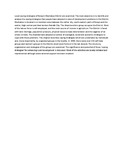Local coping strategies in Machakos District, Kenya.
Abstract
Local coping strategies of Kenya's Machakos District are examined. The main objective is to identify and analyse the coping strategies that people have adopted in view of development problems in the District. Machakos is situated in a transition area between the rather dry, south-eastern parts of Kenya and the wetter, high central part that borders Nairobi City. The Akamba ethnic group occupies the District. Most of the labour force is self-employed, and the main source of income is agriculture. The District is faced with land shortage, population pressure, physical resource base deterioration and the vagaries of an erratic climate. The Akamba have adopted a number of ecological, social and economic strategies to cope with these problems. The chapter describes coping strategies which are undertaken by individuals and, more importantly, by organized groups in the locality. In 1989, there were over 115 self-help groups and women's groups in the District; most were formed in the last decade. The structure, organization and strategies of the groups are examined. The significance and potential of these 'coping strategies' for enhancing rural development is discussed. Most of the activities are locally initiated and implemented although some external support has been received.
URI
http://www.cabdirect.org/abstracts/19931852817.html?resultNumber=1&q=au%3A%22Ondiege%2C+P.+O.%22http://hdl.handle.net/11295/82527
Citation
Development from within: survival in rural Africa. 1992 pp. 125-147Publisher
University of Nairobi

